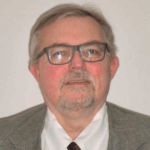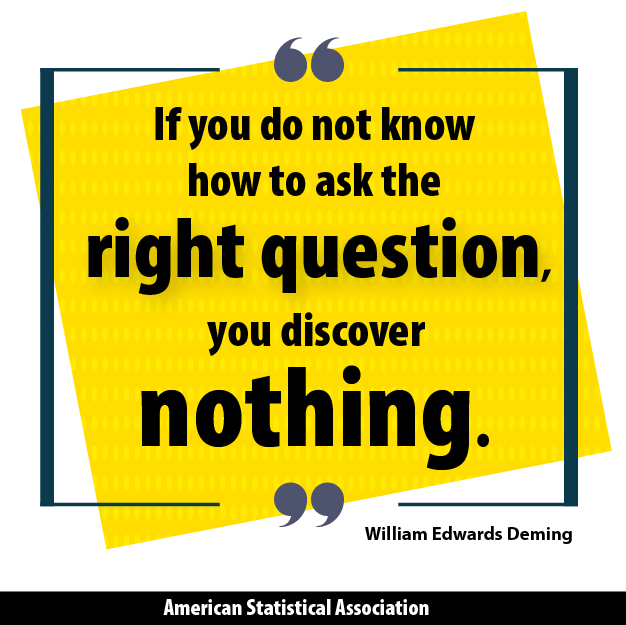 Nestor Rohowsky provides statistical support to the pharmaceutical, biotechnology, and medical device industries as an employee and, as of 1995, as the owner of Integrated Data Consultation Services, Inc. He earned a bachelor’s in mathematics from New York University and a master’s in mathematics—with a statistics concentration—from Hunter College of the City University of New York.
Nestor Rohowsky provides statistical support to the pharmaceutical, biotechnology, and medical device industries as an employee and, as of 1995, as the owner of Integrated Data Consultation Services, Inc. He earned a bachelor’s in mathematics from New York University and a master’s in mathematics—with a statistics concentration—from Hunter College of the City University of New York.
May 2016 marked the completion of 34 full years of providing statistical services to the pharmaceutical, biotechnology, and medical device industries. During the first 14 years, I moved up the corporate “food chain” from an entry-level position, where I did those jobs my more senior colleagues passed on to me, to a director-level position, where I had high-level decision making interactions with other groups within and outside the company and personnel assignment and budgetary responsibilities within my department. Then, a little more than 20 years ago—being fed up with mergers, acquisitions, and general “right-sizing” involving companies I worked for—I decided to try my hand at independent statistical consulting. I consider it one of the best career moves I have ever made.
You may be thinking, “Big deal! A lot of people have done that!” Yes, a lot of people have had career paths similar to mine, but there’s a difference between me and the majority of others. I did it without benefit of a doctoral degree. No PhD, no DrPH, no ScD. My highest level of completed formal education is a master’s degree. Was that how I planned things to happen? Absolutely not.
After earning my master’s, I spent a summer interning at a large New Jersey–headquartered pharmaceutical company, after which I entered a PhD program in statistics. It was there that the events that ultimately shaped my future occurred. First, I discovered that no matter how hard I studied, I could not fathom the intricacies of measure theory—a prerequisite for the degree at this university. Later, I lost some time recovering from a fairly major surgical procedure, and, last but not least, my wife let me know we were expecting a child (this, alas, did not actually happen until a couple of years later). This combination of events led me to conclude that I needed to find employment to pay bills and support my growing family. School would have to wait. I’d go back when things settled down.
It was then I landed the entry-level position. The company was a smallish unit of a large foreign-owned corporation. I spent more than three years there, going from doing what others didn’t want to do to being lead statistician on several projects. I helped contribute to two successful new drug applications (NDAs), but toward the end of my stay, I wanted new challenges. I wasn’t convinced I would find those with my employer, and so began looking to make a change.
I moved to another small unit of a different large company, where I had my first taste of management and decision making. I discovered I wasn’t yet ready for the hard calls managers sometimes have to make, but loved the interaction with other departments. Another successful NDA was the result. I made several more moves within the industry and, at each one, I took it upon myself to learn skills traditionally not considered statistical in nature. I wanted to understand how other groups I interacted with—clinical, regulatory, data management, and sales and marketing—approached and resolved problems. I attended a number of professional meetings intended for clinical and/or regulatory specialists and insisted on participating in the planning and preparation of manuscripts and promotional materials.
In late summer of 1995, I began my own statistics consulting company. Almost all my colleagues told me it wouldn’t last, because running such a business is difficult from the get-go and providing “expert” consultation without a doctorate was the kiss of death. It’s now nearly 21 years later and I’m still in business, and, in fact, I’m thriving, whereas many others who have tried—the majority with doctoral degrees—have failed. Why? I think it’s because I learned to listen to my clients, and I try to keep things as simple as I can without compromising statistical integrity. I’m also willing to do less “sexy” tasks (data entry comes to mind, ugh).
The biggest “coup” of my early consulting career was landing a 15-month project with Columbia Presbyterian Medical Center in New York City. During my interview, I asked why they didn’t use statisticians from Columbia University—after all, they were two parts of a common institution. The answer stuck with me and guides me to this day: “We need someone who gets down to the nuts and bolts of a project; listens to us and asks good questions; and is interested in results, rather than constantly trying to tweak things to satisfy their own professional curiosity.” About a year after completing that project, they called asking me to help with something new. Unfortunately, I was busy with other clients by then and couldn’t devote the time and energy necessary to do a proper job.
Why have I told you all this? The reason is simple. A master’s-level statistician can make it and do well for him or herself. First, study hard. Try to land work related to your studies, either through your school or on your own, to gain real experience. Remember that reality and what’s in textbooks are often different. Once in the workplace, observe what is going on around you. Sherlock Holmes was right when he said Dr. Watson and others could look at something without actually seeing what was there! Ask questions, keeping in mind there really are no stupid questions. Be curious about the process as a whole, not just your part in it.
In my case, I learned how to program and acquired the basics of data management. I went on monitoring trips with CRAs to witness how they interacted with physicians and nurses at study sites and when discussing data in source documents.
Attend professional meetings—not only the large JSM types, but also smaller, more focused ones—to keep current with new ideas and developments in your field. Take some risks. You’ll fail some of the time (my second job was as a manager, a position I was woefully unprepared for), but if you learn from your failures and missteps, you’ll likely succeed as well. Eventually, you may find that your successes outnumber failures, both in quantity and quality.
Finally, try your hand at public speaking (much harder than one may think) and performing nontraditional roles. I recently taught undergraduate university-level math and statistics courses to business majors. I also have presented at professional meetings geared toward clinical trials and will continue to do so. As for nontraditional activities, I have provided statistical support to PhD candidates—not in statistics, but in other disciplines in which statistics play a major role.
My advice to you is if you can, earn the doctorate. But if you can’t, it doesn’t have to be the end of the world. You can still be successful. You’ll just need to be a little more creative and assertive, work a bit harder, and not take no for an answer!




Leave a Reply